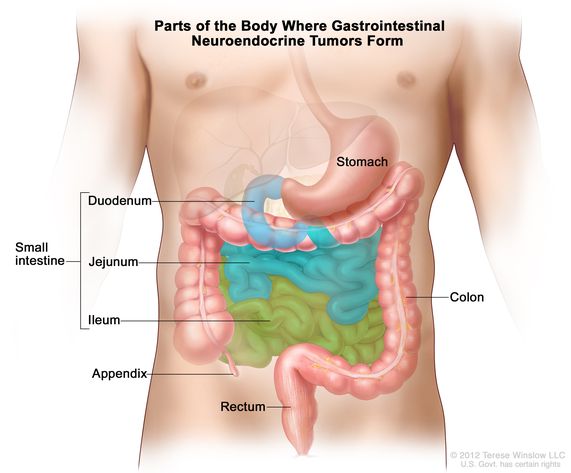gastrointestinal neuroendocrine tumor
(GAS-troh-in-TES-tih-nul NOOR-oh-EN-doh-krin TOO-mer)
A rare, slow-growing type of cancer that forms in the lining of the gastrointestinal (GI) tract, usually in the small intestine, rectum, or appendix. Sometimes more than one tumor may form. Gastrointestinal neuroendocrine tumors form in neuroendocrine cells that make hormones that help control digestive juices and the muscles used in moving food through the stomach and intestines. Signs and symptoms of gastrointestinal neuroendocrine tumors vary by where they are found in the GI tract. In some cases, the hormones made by these tumors may cause a condition called carcinoid syndrome. Symptoms of carcinoid syndrome include facial flushing, diarrhea, wheezing, and a rapid heartbeat. Also called gastrointestinal carcinoid tumor.
